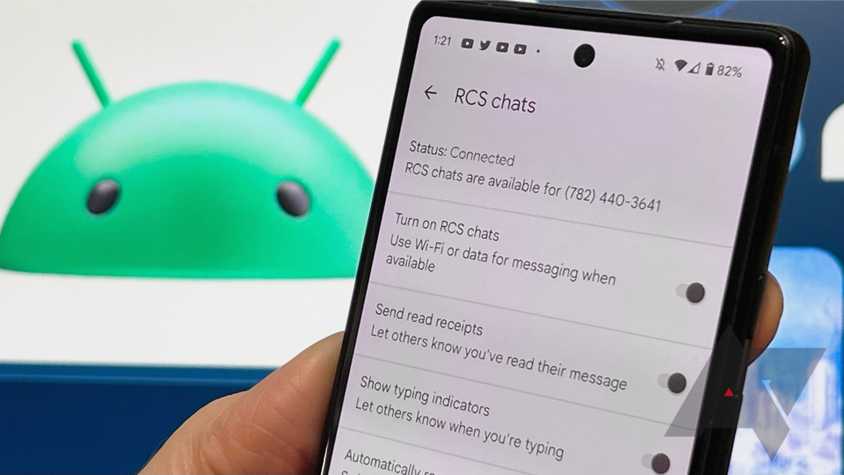Every Android phone receives monthly security updates until the end of its software support life cycle. These security updates never change how your phone works on the surface, but they can have a bigger impact on your phone than any Android OS update.
Security updates protect your phone from hackers by removing exploits, patching bugs, and fixing vulnerabilities. These updates are created by Google, which sends them to the various Android manufacturers who then update their devices.
Android security has come a long way over the years, and the best way to keep your device secure is to follow basic security rules when using your device. Nevertheless, you should always ensure that you keep your Android security updates current.
5
The rate of mobile threats has drastically increased
But security updates can only do so much
The rate of cyberattacks on Android devices has dramatically increased in recent months. Malicious actors are developing coordinated methods to harvest data and take over devices. These often take the form of phishing attacks, which no security update can prevent.
If you click on a dodgy link and enter your personal details, then Google can’t help you. You can mitigate the damage after clicking on a phishing link, but it’s not a foolproof method.
Google can help you against the increased number of cyberattacks in other ways. While zero-day exploits have remained relatively stable, Google has proved effective at stopping new exploits before they’re discovered.
The only way you can benefit from this protection is to update your device. Hackers know that not everyone updates their device regularly; just because Google discovered and fixed an exploit first doesn’t mean hackers won’t try and use it anyway.
4
The longer you ignore security updates, the more vulnerable you are
Hackers don’t ignore vulnerabilities
Imagine your phone’s security as a brick wall. On the other side is a nefarious individual chucking rocks at it. Nothing happens as the rocks bounce off, but over time, the wall starts to decay and bricks fall out, leaving gaps for rocks to fly through and smack you in the face. Google then comes along and replaces the missing bricks.
Now, imagine that every time Google came along with its supply of replacement bricks, you turned them away. More holes appear, and the chance of a rock smacking you in the face grows more likely every day.
Ignoring security updates creates more holes in your security wall for hackers to exploit. Missing one or two updates isn’t a big deal, but missing multiple can be dangerous. Just because you aren’t at risk from an exploit detailed in the latest security patch now, doesn’t mean you’ll become vulnerable later.
3
Zero-day exploits leave your phone at its most vulnerable
Security updates must be installed as soon as possible
In April 2025, Google released a security update that fixed two vulnerabilities that were under active exploitation by hackers. These exploits could allow remote users to escalate their privileges on your phone; they would have free roam of your phone and its apps without you ever knowing.
The rate of zero-day exploits on Android has remained relatively stable over the past few years, but as more Android devices are released, the chances of new exploits through third-party apps increase.
These exploits are called “zero-day” exploits as they took advantage of an unknown security flaw in the Android operating system. In other words, the first person who discovered the exploit was a malicious actor.
Once a zero-day exploit is discovered by a hacker, it’s a race against time for Google to discover and release an update. The longer Google takes, the more time the hacker has to access your device.
If you don’t work in a sensitive industry like banking or government, you’re probably not high on the list of priority for hackers using zero-day exploits. Nevertheless, your device and your personal data are susceptible, and the only fix is to update your device as soon as possible.
As in the case of April’s security patch, these updates can arrive at irregular times, so if you spot news of a security exploit, manually check for updates immediately.
2
Relying on common sense isn’t working
You’re not as good at security as you think
A common argument for why you shouldn’t care about security updates is that you’re not in danger of exploits in the first place. There’s a lot of merit to this argument.
If you only install apps from Google Play and don’t visit dodgy websites, then your chances of suffering from a security exploit are slim. Thus, people will say, “Just use common sense!” when you worry about security. Unfortunately, this isn’t great advice.
We have a false sense of security when it comes to our smartphones. Studies have shown that we have a false perception that apps will not harm us, thanks to the work put in by Google to protect us. This is not an unreasonable conclusion. Google has indeed made the Play Store a relatively safe space to download apps from.
However, as we feel more secure, we pay less attention to security measures. We’ve become used to ignoring privacy requests and allowing apps permissions without thinking about why they need them.
It’s an interesting cycle. Google makes our devices secure, so we become complacent. We allow exploits to affect our devices, which are (hopefully) stopped by Google’s security measures.
Keeping our devices updated with the latest security patches is the least we can do in an age when the rate of cyberattacks is increasing. They form a strong first line of defence and act as a safety net when we become complacent.
1
Security updates go hand in hand with OS updates
Security updates make new features stronger
Android 16 will feature Advanced Protection Mode. This will consolidate existing, new, and upcoming security features behind a single switch. Turn it on, and your Android phone will activate various safeguards to protect you.
For example, it will stop your device from reconnecting to insecure Wi-Fi networks, save security logs using end-to-end encryption, and only allow USB connections to charge your phone while your device is locked.
These features are powerful, but they rely on security updates to work. For example, Advanced Protection Mode will stop you from downloading unknown apps. You will thus only be able to download apps from pre-loaded app stores (e.g., the Play Store), which will put your downloads under the umbrella of the Play Protection Program.
Regularly installing security updates will make features like Advanced Protection Mode more effective. Advanced Protection Mode is the biggest security feature Google has launched in years, but it won’t be the last.
Keep your device updated with the latest security measures to allow Google’s new security features to work as they should.
Teamwork is needed for security updates to work
Google does a fantastic job of protecting our Android phones from malicious actors, but security updates are irrelevant without our help. Avoiding pirated material, checking for phishing links, and avoiding sideloading apps are all crucial steps we can take to protect our devices. Don’t become complacent behind Google’s security wall.






